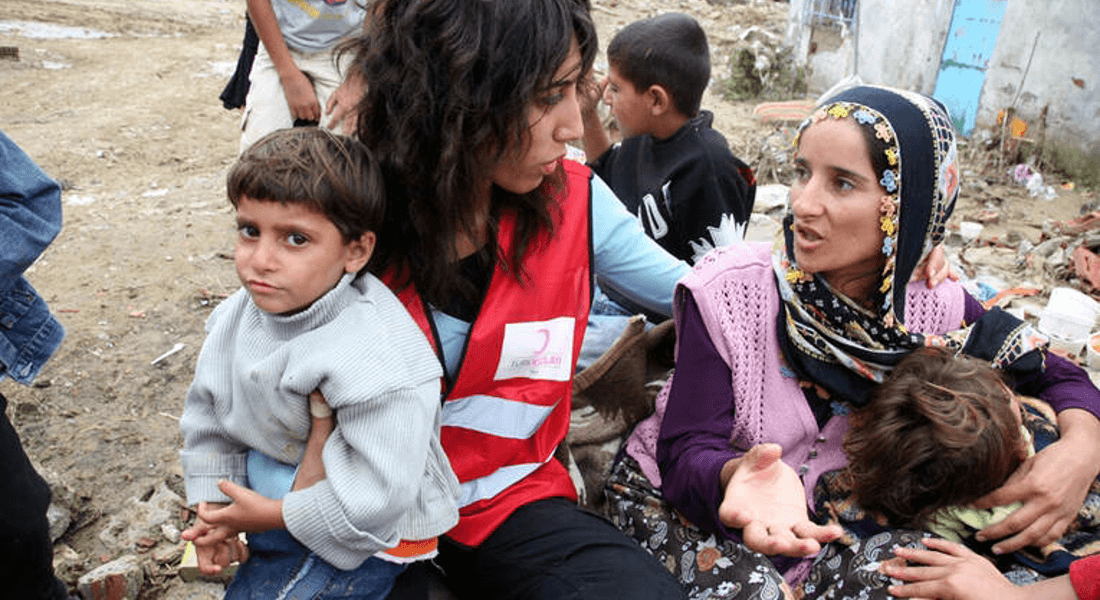Research priorities for mental health and psychosocial support in humanitarian settings for the years to come
A new consensus-based research agenda outlines the top 20 research questions that key stakeholders in the field feel should be answered and prioritised in the current decade. The agenda can lead to stronger impact of research for mental health and psychosocial support in humanitarian settings, such as armed conflicts and disasters, says Wietse Anton Tol, Professor in Global Mental Health from the University of Copenhagen.

The consensus-based agenda is able to guide the decisions of research donors and those conducting research on mental health and psychosocial support (MHPSS) in humanitarian settings with regard to the kind of research that they fund and pursue. Currently, there are large gaps between the kind of knowledge that practitioners and policymakers need and the kind of research that is actually conducted. The 20 questions that have been identified, are by consensus the most significant, answerable (a study can be conducted to answer the question), and applicable (likely to influence policy and practice). This information is vital for research donors and those conducting research in the field of MHPSS, as it highlights the gaps between the knowledge needed by practitioners and policymakers and the research that is currently being conducted.
Groundbreaking: Shifts in priorities and methodology
The research agenda is groundbreaking as it is the only one of its kind in the MHPSS field, developed by a large group of people representative of the field. This new research agenda also demonstrates some clear shifts in the kind of research that key stakeholders believe should be conducted to improve mental health and psychosocial well-being in people affected by humanitarian crises. This is shown by a comparison of the new consensus-based agenda and a consensus-based research agenda that was published in 2011 for the 2011-2020 decade, with a similar methodology. Compared to ten years ago, the current research agenda focuses less on research to evaluate interventions and more on implementation research, how evidence-based interventions can be delivered in practice.
Research design
The consensus-based agenda was developed through a structured process that involved coming up with research questions through a qualitative study in three countries affected by humanitarian crises, including people with lived experiences (102 people), consultations led by humanitarian agencies themselves (259 people), and an expert panel with people providing MHPSS interventions, researchers, and policymakers (227 people). Eighty-four percent of the respondents were based in low- and middle-income countries and fifty-one percent were female. Altogether, the participants raised 1502 research questions that were the most important in their opinion. These research questions were then condensed into a short list of 61 research questions using qualitative data analysis. Finally, an expert panel selected the top 20 research questions and rated them based on their significance, answerability, and applicability.
Implications of the consensus-based agenda
The impact of this research agenda is significant for the future of human health, as the top 20 research questions identified can guide the direction of research in the field of MHPSS. The research agenda provides a framework for researchers to conduct research that is most significant, answerable, and applicable to policy and practice. Ultimately, this research could lead to improvements in mental health and psychosocial support for those affected by humanitarian crises.
The research agenda was published in Lancet Global Health on 25 April 2023.
Contact
Funding
- The research project is funded by Elrha’s Research for Health in Humanitarian Crises (R2HC) Programme, which aims to improve health outcomes by strengthening the evidence base for public health interventions in humanitarian crises.
- The R2HC programme is funded by the UK Government (DFID), the Wellcome Trust, and the UK National Institute for Health Research (NIHR).
Visit www.elrha.org/r2hc for more information about Elrha’s work to improve humanitarian outcomes through research, innovation, and partnership.

